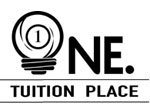03 Dec
2015
How to Score A1 for O Level Chemistry Exam
O Level Chemistry Tuition Centre Singapore | Score A1 for Chemistry

Know Your Textbook Inside Out
The first thing I always advise my students is to treat your Chemistry textbook as your notes as it is well researched and extremely informative. Of course, it is not to say that the Chemistry textbook is the only reading material which you use. You should use the Chemistry textbook as your base set of notes and add on any other information which you have come across. These would include information which I have taught in Chemistry classes, from the notes, from practice questions etc. Over time, your Chemistry textbook would be an invaluable tool which will help you score your A1 for your O Level Chemistry exam.
Understand and Memorise Chemical Formulae
Should I understand first then memorise? Of course you should! It is important to understand the concepts first before memorising as this information is retained better if you have understood it. Writing chemical formulae is like the ABCs of Chemistry and if you are struggling with Chemistry, then you should go back to the chapter on Writing Chemical Formula and Equations to master that topic first before studying any other topic.
Practice MCQs
When you learn a new topic, you should practice about 30 to 50 different types of MCQ questions to have a good feel of the key concepts of this topic. To be at the A1 standard, you need to be able to explain why your answer is correct and also why the other 3 answers are wrong. If you are able to do that, this would show that you are well grounded in your Chemistry knowledge.
Practice Structured & Free Response Questions
Being proficient at MCQs is not enough as most of the marks is from Chemistry Paper 2. Just like any other Science subject, Chemistry Paper 2 is still focused on getting the right keywords and presenting your answers in a structured way. Use Chemical Formulae and Equations to explain your answers if possible and make sure that every part of the question is fully answered. The last thing to take note of is to have sufficient elaboration. I know that we live in a digital age where short forms and #hashtags are the norm and students find it difficult to write fully elaborated proper sentences. But if you want to score your A1, you have to write enough content scoring phrases. Otherwise, the examiner may not award you the full mark as your answer is somewhat incomplete.
Revise before the Exam Day
Plan your timetable properly before the big exam day. Spread out the revision workload over several days rather than to cram everything within 2 or 3 days. Return back to questions where you have made mistakes before and try them again. Just reading through the answers does not stimulate your thinking and does little good. For the day before the exam, do not practice any more questions as this is counter-productive. Revise the key concepts and notes you have made in your textbook and get a good night sleep before the Chemistry exam. Good luck!
